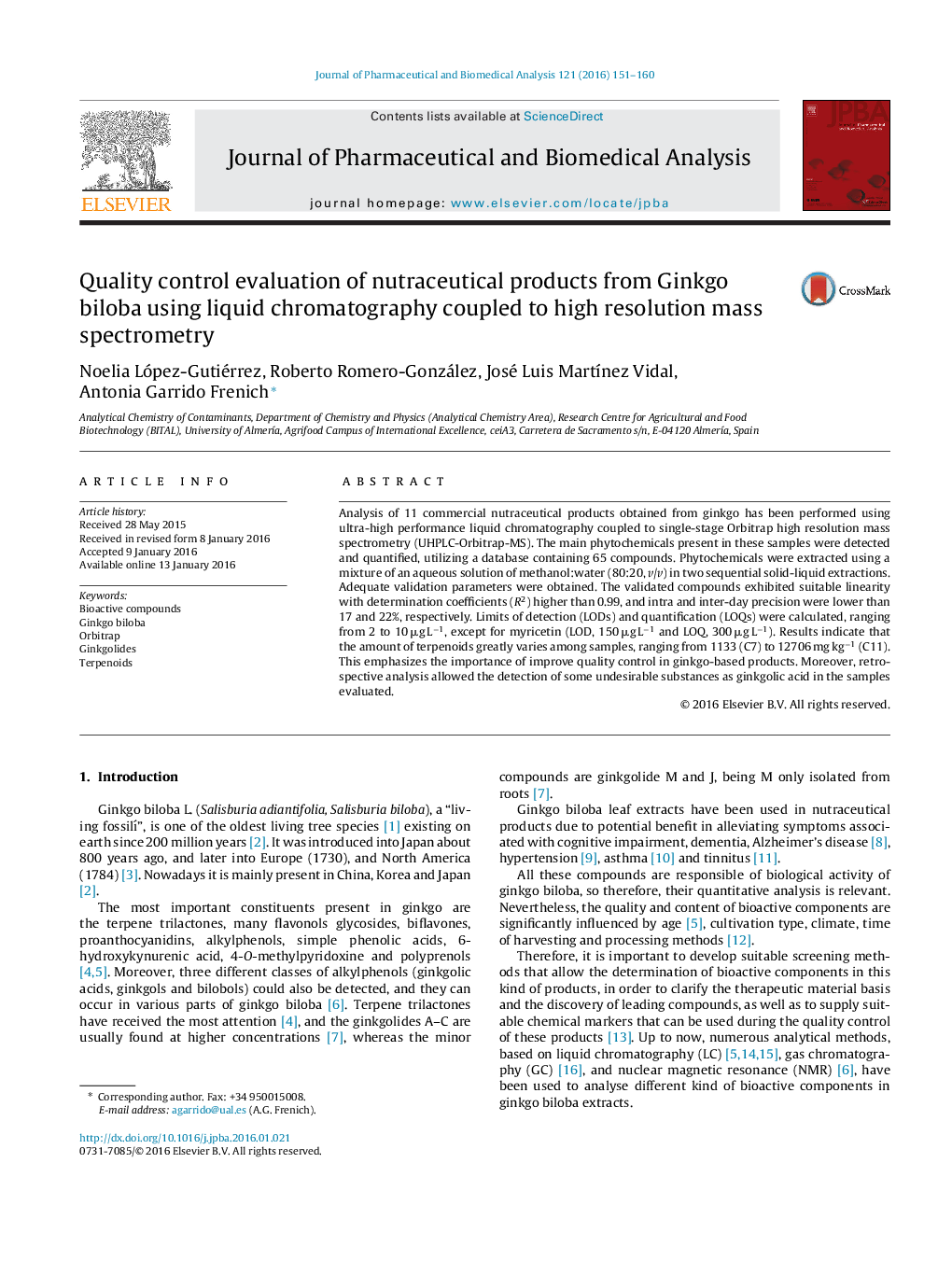| Article ID | Journal | Published Year | Pages | File Type |
|---|---|---|---|---|
| 1220944 | Journal of Pharmaceutical and Biomedical Analysis | 2016 | 10 Pages |
•Use of Orbitrap for the determination of polyphenols in ginkgo biloba products.•Determination of several kinds of polyphenols in less than 16 min.•Quality control of these products determining terpenoids and flavonol glycosides.•Retrospective analysis to identify non-desirable compounds as ginkgolic acids.
Analysis of 11 commercial nutraceutical products obtained from ginkgo has been performed using ultra-high performance liquid chromatography coupled to single-stage Orbitrap high resolution mass spectrometry (UHPLC-Orbitrap-MS). The main phytochemicals present in these samples were detected and quantified, utilizing a database containing 65 compounds. Phytochemicals were extracted using a mixture of an aqueous solution of methanol:water (80:20, v/v) in two sequential solid-liquid extractions. Adequate validation parameters were obtained. The validated compounds exhibited suitable linearity with determination coefficients (R2) higher than 0.99, and intra and inter-day precision were lower than 17 and 22%, respectively. Limits of detection (LODs) and quantification (LOQs) were calculated, ranging from 2 to 10 μg L−1, except for myricetin (LOD, 150 μg L−1 and LOQ, 300 μg L−1). Results indicate that the amount of terpenoids greatly varies among samples, ranging from 1133 (C7) to 12706 mg kg−1 (C11). This emphasizes the importance of improve quality control in ginkgo-based products. Moreover, retrospective analysis allowed the detection of some undesirable substances as ginkgolic acid in the samples evaluated.
Graphical abstractFigure optionsDownload full-size imageDownload as PowerPoint slide
